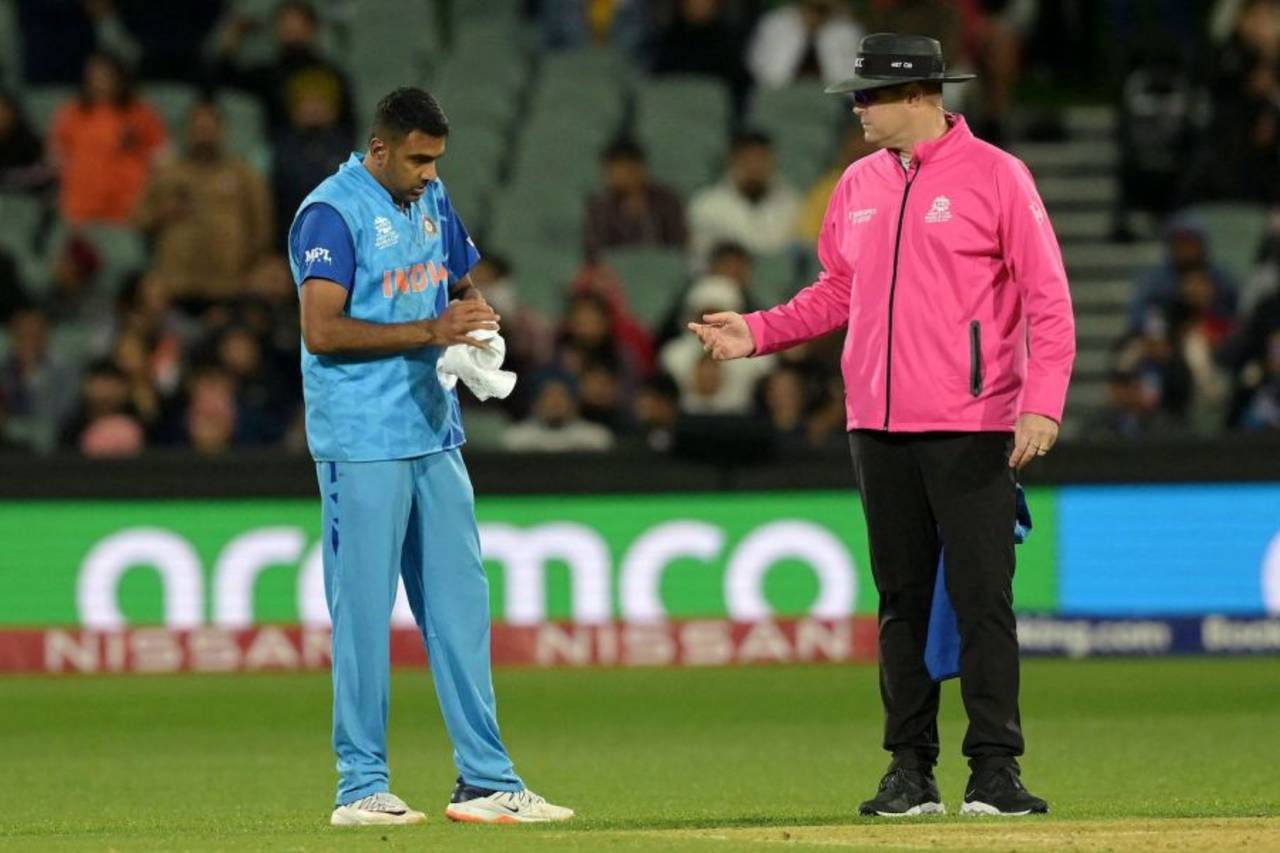Ashwin wants World Cup matches to start early to minimise dew factor
The offspinner believes starting games at 11.30am rather than 1.30pm would lead to fairer contests
ESPNcricinfo staff
15-Jan-2023

R Ashwin: 'If we start at 11.30am, the dew factor won't come into the game' • AFP/Getty Images
Should day-night matches in India begin earlier to minimise the impact of the dew factor? R Ashwin certainly thinks so. The India offspinner wants matches at the upcoming ODI World Cup, which will be played in India in October-November 2023, to begin at 11.30am - a full two hours earlier than the usual start of day-night ODI games in India.
In a video on his YouTube channel, Ashwin took the example of India's first ODI against Sri Lanka in Guwahati to suggest that dew gives chasing teams an undue advantage. Sent in to bat, India batted with deliberate urgency keeping the dew factor in mind and posted a total of 373. They eventually won by 67 runs, but Ashwin felt the margin of victory did not reflect their dominance on the day.
"India batted beautifully on a slow wicket and posted a score well above par. Still they ended up having to fight tooth and nail [to win]," he said. "The quality difference between the teams isn't coming through - dew is narrowing that gap if you happen to lose the toss.
"My suggestion - or rather my opinion - for the World Cup is to look at what venues we are playing in, and at what times. Why shouldn't we start matches at 11.30am during the World Cup?"
Day-night ODIs in India usually begin at 1.30pm, and extend well into the primetime television hours. While starting matches earlier may arguably lead to fairer contests, broadcasters may be against such a move given the potential risk of reduced viewership figures. Ashwin, though, suggested that fans would tune in to watch World Cup matches regardless of timing.
"People will bring up television viewers and broadcasters, and say that people won't latch on and watch at that time, but would they not latch on to World Cup matches?" he asked. "The recent T20 World Cup was also held in winter, prioritising the summer [for Australia's home bilateral season]. It wasn't the ideal scenario - T20 is a fast-paced game, how can you play it in winter? People will say that's not the case in Australia, but still, we need to prioritise World Cups.
"The ICC knows very well that there will be dew, so let's advance the game, and if we start at 11.30am, the dew factor won't come into the game, and why not? Won't all cricket fans prioritise the World Cup and watch matches at 11.30?"
As things stand, Ashwin suggested that teams around the world look at dew as one of the most significant factors in shaping day-night games in India.
"ECB recently invited applications for the analyst's position, and - I came to know this through some analysts I know - one of the important questions they asked was, 'How big a factor is dew in Indian conditions in white-ball cricket?' They're looking to bring in the best analytical tools possible ahead of the 2023 World Cup, and they've asked all the pertinent questions, so you can see how crucial everyone in world cricket thinks the dew factor is in Indian conditions."